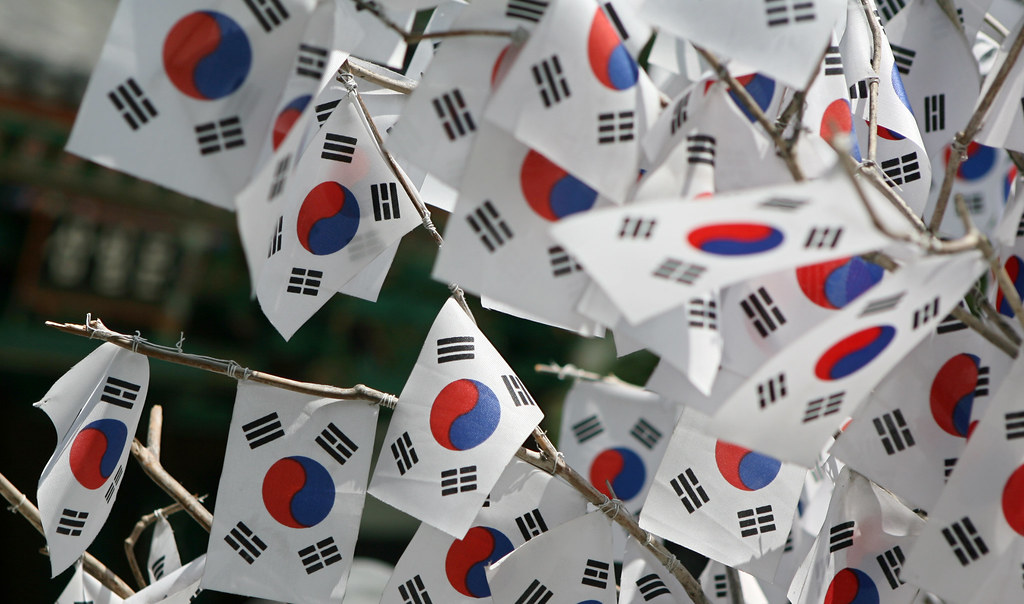With ‘tech police,’ the KIPO commissioner promises to strengthen support for SMEs in patent conflicts around the world.
Intellectual property rights can be deployed as spears and shields in the worldwide fight for technological hegemony, as the torturous seven-year patent conflict between Samsung and Apple through 2018 demonstrated. In the first half of this year, applications for intellectual property rights in South Korea increased 12.3% from the previous year to 284,135 cases, with the number likely to surpass 600,000 this year.
The KIPO is working to construct a patent data system to assist local businesses in staying ahead of future
Commissioner Kim Yong-rae told The Korea Herald that the Korea Intellectual Property Office should step up to foster and protect intellectual properties in order to maintain the spirit of innovation alive. “Our agency’s ultimate aim is to create a virtuous circle of innovation across IP creation, protection, and usage, adding to the competitiveness of local businesses,” said Kim, who took office in September of last year.
The state IP agency is expanding international cooperation to better examine patent applications and enhance digitization under his leadership, as well as bolstering support for small businesses in patent disputes abroad and seeking to improve intellectual property rights protection, according to the commissioner. The KIPO has sought to improve the intellectual property system and harmonize the systems of different countries through multilateral cooperation at the Intellectual Property Five (IP5), the World Intellectual Property Organization (WIPO), a trilateral forum with China and Japan, and the Association of Southeast Asian Nations (ASEAN).
The South Korean patent office implemented the Patent Prosecution Highway (PPH) that allows fast track examination of patent applications if another country has issued a patent for the same invention, and the Collaborative Search Program under which examiners in two different countries can share what they have looked at so far on patent applications made in both countries through bilateral cooperation with some 40 countries. The scope of international intellectual property collaboration is expanding, according to the commissioner, as new technologies such as artificial intelligence, blockchain, and the metaverse emerge.
Since 2019, the KIPO has led an IP5 task force on new emerging technologies and artificial intelligence, which in June produced a road map for collaboration to protect AI inventions and apply new technologies in examinations.
The KIPO is also in working-level talks with the UK and Canada, which aren’t members of the IP5, to exchange and standardize inspection policies on AI inventions. The KIPO has been a member of the IP5, a forum comprising the world’s five largest intellectual property offices, including those in the United States, Europe, Japan, and China, since 2007.
In 2019, patent applications to the five patent offices accounted for nearly 85% of all patent applications worldwide. In 2016, more than 350,000 patent applications were filed with two or more of the five intellectual property offices, indicating that strong collaboration allows them to spend less time on patent exams. The IP5 built a system to share patent information and is working to make the global intellectual property system more convenient and efficient, in addition to achieving its basic purpose of promptly processing a backlog of unexamined patent applications.
The KIPO also assists Korean small and medium-sized enterprises embroiled in international patent litigation, which can take years and cost billions of won. The KIPO intensified surveillance of SMEs’ patent disputes abroad and helps them form plans to deal with them by establishing 15 IP-DESKs in nine countries, including two in the United States and six in China. The KIPO increased support for IP-R&D, a research and development strategy linked to intellectual property rights, from 232 tasks in 2018 and 246 in 2019 to 505 last year in order to avert patent disputes in advance.
The KIPO also produces intellectual property vouchers that can be used to obtain patent analysis and litigation loans. The KIPO has expanded the role of its special judicial police squad, which previously focused on trademarks, to include inquiries into patents, trademarks, and designs in order to better defend intellectual property rights. These “tech cops” specialize in patent and trade secret investigations that are difficult for conventional cops to manage, based on their technological and legal knowledge gained via experience in KIPO examinations and trials.
Kim said the tech police recently prevented a core technological leak from a semiconductor production facility company by investigating attempts to steal its trade secrets. Kim stressed: “With fair and prompt action, we will respond to any potential technological breaches in critical strategic industrial domains and defend our enterprises’ intellectual property,” What was once a 47-person to investigate illegal activities related to trademarks, patents and unfair competition, has been divided into three specialty divisions with a total of 58 people.
In 2010, the KIPO formed special judiciary police on trademarks, including offices in Seoul, Busan, and Daejeon, to improve law enforcement on counterfeits. Since then, they’ve investigated over 53,000 reported incidents, arrested over 4,000 people on criminal charges, and seized over 12 million counterfeit goods.
In 2010, the KIPO formed special judiciary police on trademarks, including offices in Seoul, Busan, and Daejeon, to improve law enforcement on counterfeits. Since then, they’ve investigated over 53,000 reported incidents, arrested over 4,000 people on criminal charges, and seized over 12 million counterfeit goods. As the worldwide race for technological hegemony heats up, particularly in the domains of artificial intelligence and semiconductors, the KIPO is working to construct a patent data system to assist local businesses in staying ahead of future technology trends by monitoring global advances. It anticipates that the data system will enable firms to study the most recent patent trends across various industries, allowing them to improve their technological competency.
The list of Korean IP Firms can be found here.

